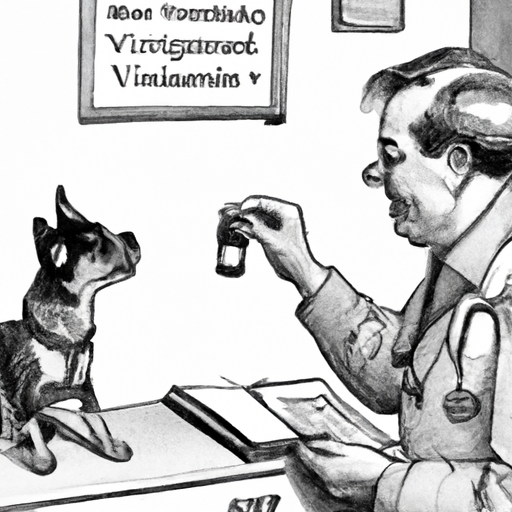As a pet owner, it’s heartbreaking to see your furry friend in discomfort. One common issue for dogs is gastrointestinal problems, and Famotidine is a medication often used to treat these conditions. It’s crucial to administer the correct dosage to ensure the drug’s effectiveness and prevent possible side effects. So, how much Famotidine for dogs is appropriate? Let’s delve into this topic.
Table of Contents
- Understanding Famotidine
- How Much Famotidine for Dogs
- Side Effects of Famotidine
- Frequently Asked Questions
- Conclusion
Key Takeaways
- Famotidine is a common medication used to treat gastrointestinal issues in dogs.
- The dosage of Famotidine depends on your dog’s weight.
- Always consult with a veterinarian before administering any medication to your pet.
- Famotidine may cause side effects; monitoring your pet for changes is crucial.
Understanding Famotidine
Famotidine, also known by its brand name, Pepcid, is a type of antihistamine that reduces the amount of stomach acid produced. It’s often used to treat conditions like ulcers, gastritis, and acid reflux in dogs. The medication can also be used to prevent stomach ulcers in dogs who are taking other medications like nonsteroidal anti-inflammatory drugs (NSAIDs). For more information on how this medication works, you can refer to this detailed article.
How Much Famotidine for Dogs
The dosage of Famotidine for dogs usually depends on their weight. Generally, a usual dose is 0.22 to 0.44 mg per pound (0.5 to 1.0 mg/kg) every 12 to 24 hours. This means that a 20-pound dog would receive about 4.4 mg of Famotidine, while a larger 60-pound dog would receive around 13.2 mg. However, these are general guidelines, and it’s crucial to get the correct dosage from your veterinarian. It’s also important to remember that Famotidine should be given to your dog on an empty stomach, as food may affect its effectiveness.
Here’s a simple dosage table for reference:
| Dog’s Weight | Famotidine Dosage |
|---|---|
| 10 lbs | 2.2 mg |
| 20 lbs | 4.4 mg |
| 30 lbs | 6.6 mg |
| 40 lbs | 8.8 mg |
| 50 lbs | 11 mg |
| 60 lbs | 13.2 mg |
Side Effects of Famotidine
Like any medication, Famotidine can cause side effects. Common side effects include loss of appetite, vomiting, diarrhea, and lethargy. In rare cases, allergic reactions can occur, which may result in symptoms like hives, difficulty breathing, or swelling. If you notice any changes in your dog after administering Famotidine, it’s essential to contact your vet immediately. For more information on the potential side effects of Famotidine, check out this link.
Frequently Asked Questions
Q1: Can I give my dog Famotidine without consulting a vet?
No, always consult a vet before giving your dog any medication. While Famotidine is commonly used in dogs, it’s important to get a proper diagnosis and dosage recommendation from a professional.
Q2: Can Famotidine be used long term in dogs?
Long-term use of Famotidine should be under the supervision of a vet. While it’s generally safe, prolonged use can potentially lead to side effects, and other underlying health issues might need to be addressed.
Q3: Can Famotidine be used for dogs with kidney disease?
Famotidine can be used in dogs with kidney disease, but the dosage might need to be adjusted. Always consult with your vet about your dog’s specific health conditions.
Q4: Can I use over-the-counter Famotidine for my dog?
While over-the-counter Famotidine is the same as the prescription version, it’s essential to get a dosage recommendation from a vet. Never give your dog medication without consulting a professional first.
Conclusion
Famotidine can be a helpful tool in managing your dog’s gastrointestinal issues. However, it’s vital to always consult with your vet before administering any medication. Monitor your dog for any changes while they are taking Famotidine and communicate with your vet for any concerns. Your dog’s health is a priority, and with the right care, they can live a happy and comfortable life.
For more information about taking care of your dog, you might find these articles from OneTopDog helpful: Dog Nutrition Basics, Common Dog Health Problems, and Tips for New Dog Owners.



